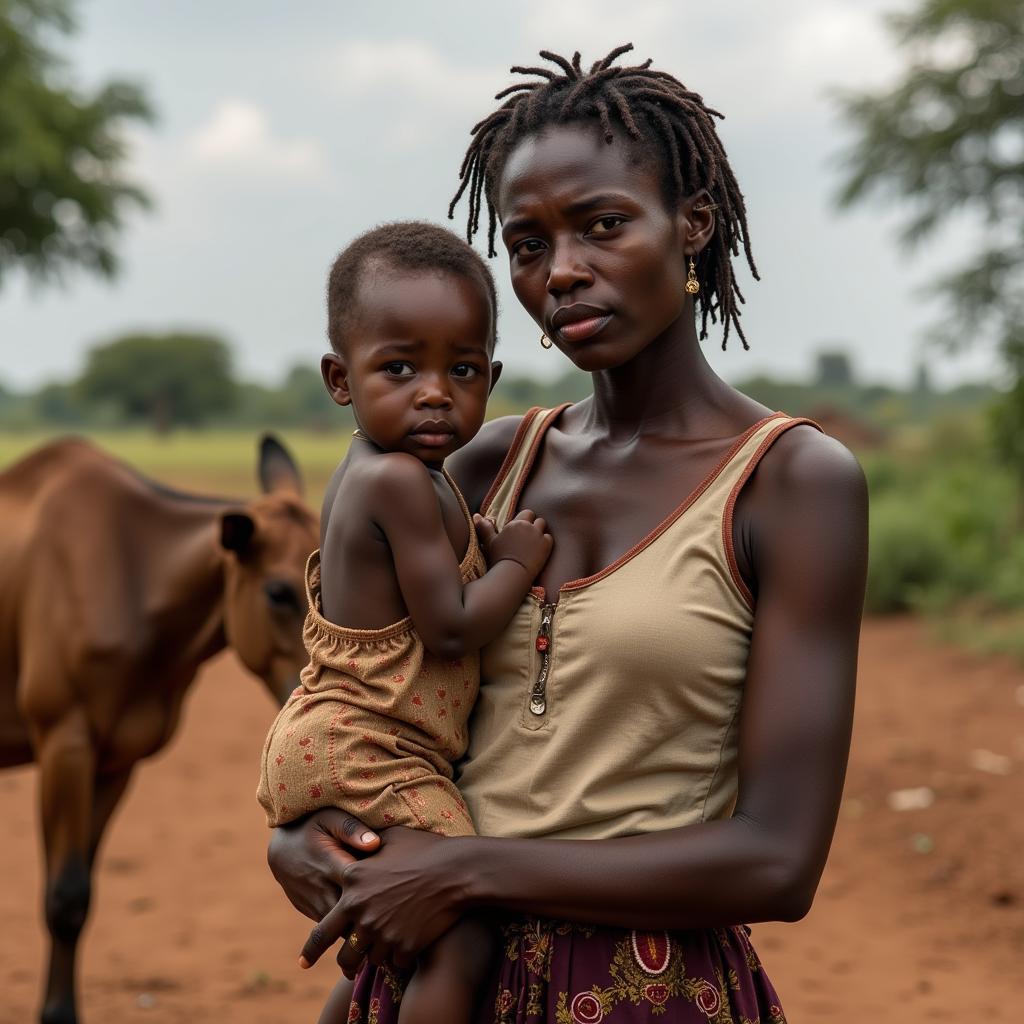Unraveling the Mystery Behind African Fever Names
African Fever Names might conjure up images of exotic illnesses shrouded in mystery. This article delves into the fascinating world of fevers that have plagued the African continent, exploring their history, cultural impact, and the reasons behind their intriguing names.
The Weight of a Name: Understanding African Fever Terminology
For centuries, fevers have been a significant health concern in Africa. Limited access to healthcare and the often-devastating effects of these illnesses led to the development of unique naming conventions. These names, often rooted in local languages and observations, provide valuable insights into how different cultures perceive and understand diseases.
Beyond the Literal: Decoding the Cultural Significance
African fever names go beyond simple medical descriptions. They often reflect:
- Symptoms: Names like “blackwater fever” (malaria) vividly describe the darkening of urine, a key symptom of the disease.
- Source: “River blindness” (onchocerciasis) points to the disease vector – blackflies breeding in fast-flowing rivers.
- Cultural Beliefs: Some names, like “the curse,” reveal traditional beliefs about the origins of diseases, often attributing them to supernatural forces or spiritual imbalances.
Common African Fever Names and Their Stories
Let’s unravel the stories behind some prevalent African fever names:
- Sleeping Sickness: This name aptly captures the advanced stages of trypanosomiasis, where neurological damage leads to extreme fatigue and altered sleep patterns.
- Yellow Fever: As the name suggests, this viral infection often causes jaundice, giving the skin and eyes a yellowish hue.
- Lassa Fever: Named after the Nigerian town where it was first identified, Lassa fever highlights the geographical connection many diseases have.
These names, passed down through generations, carry valuable information about the disease’s history, symptoms, and cultural context.
The Importance of Understanding African Fever Names in Modern Medicine
While modern medicine has made significant strides in diagnosing and treating these diseases, understanding traditional names remains crucial for several reasons:
- Bridging the Gap: Local names can help healthcare workers connect with communities and understand their perspectives on health and illness.
- Improving Public Health Initiatives: Knowing the local terms for diseases can facilitate targeted health campaigns and educational programs.
- Respecting Cultural Knowledge: Recognizing the value of traditional knowledge systems promotes cultural sensitivity and inclusivity in healthcare.
FAQs About African Fever Names
Why are some African fever names misleading?
In the past, limited medical understanding sometimes led to different diseases being grouped under one name due to similar symptoms. This could lead to confusion and misdiagnosis.
How have African fever names evolved?
With advances in medical science, many diseases now have scientifically accurate names. However, traditional names often persist alongside these, reflecting their enduring cultural relevance.
Exploring the Rich Tapestry of African Fever Names
African fever names provide a captivating glimpse into the continent’s history, culture, and relationship with disease. By understanding these names, we gain a deeper appreciation for the challenges faced and overcome, paving the way for a future where traditional knowledge and modern medicine work hand in hand.
For further exploration on African culture and natural wonders, check out our articles on the african baboob tree and the fascinating african animal-black rhinocores.
Need assistance or have questions? Don’t hesitate to contact us. Call: +255768904061, Email: [email protected], or visit us at Mbarali DC Mawindi, Kangaga, Tanzania. Our dedicated customer service team is available 24/7 to assist you.


